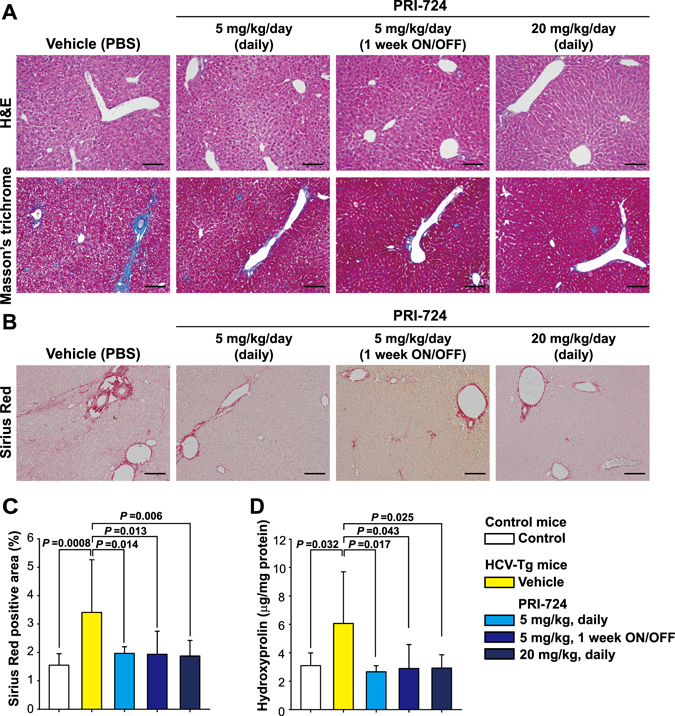Figure 1.

PRI-724, a selective inhibitor of β-catenin/CBP signaling, ameliorates hepatitis C virus-induced liver fibrosis. HCV transgenic mice were treated intraperitoneally with vehicle or PRI-724 once per day for 42 days at a dose of 5 or 20 mg/kg body weight or 1 week ON/OFF at a dose of 5 mg/kg body weight for 6 weeks (total of three cycles, each consisting of 1 week of once-daily dosing followed by 1 week without dosing) (Fig. S1A). Undosed non-trangenic mice were used as controls. (A) Liver damage and fibrosis were assessed by staining with hematoxylin and eosin (upper panels) or Masson’s trichrome (lower panels); representative micrographs are provided (scale bars = 200 μm). (B–D) Collagen deposition was assessed by Sirius Red staining and by measurement of hydroxyproline content. Sirius Red staining: Representative micrographs are provided in (B) (scale bars = 200 μm) and results are quantified in (C) (graph). Hydroxyproline content is quantified in (D) (graph). Plotted data are shown as the mean ± SD (control: n = 3; vehicle: n = 9; PRI-724 (5 mg/kg or 20 mg/kg, daily): n = 4; PRI-724 (5 mg/kg, 1 week ON/OFF): n = 3). Significance was assessed by Dunnett’s multiple comparison test as indicated; significant relationships are indicated by P-values.
